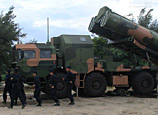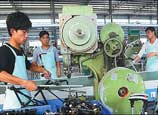
Regulations to ensure that pilot projects stay within their allotted timeframe, achieve designated goals and remain within the law, are being considered, according to a source who requested anonymity.
Draft guidelines to standardize procedures, set clearly defined criteria for carrying out projects, and make their success or failure easily identifiable, are being drawn up, the source claimed.
The move supports a speech by Vice-Premier Li Keqiang in November, shortly after he was elected to the Party's top political body.
Li emphasized that institutional reform should stay within legal boundaries at a work conference that month.
Economic reform requires grassroots innovation, incentive and encouragement along with guidance by the State Council, he said.
While reforms should retain flexibility and display initiative, they must be carried out within legal boundaries, he said.
The State Council has approved 11 regional pilot trials nationally, including reforms on finance, tax and State-owned companies. Cities such as Shenzhen and Tianjin are trailblazers for social, economic and financial reform projects.
Kuang Xianming, a researcher at the China Institute for Reform and Development, said the regulation may focus on how to reform rather than what to reform.
"It's impossible for the regulation to cover all the details of the ongoing reform projects in China, but it is possible for the draft to deal with the fundamental principles and procedures that all reforms should follow," he said.

















 Beijing Film Academy releases list of re-examination
Beijing Film Academy releases list of re-examination


![]()
